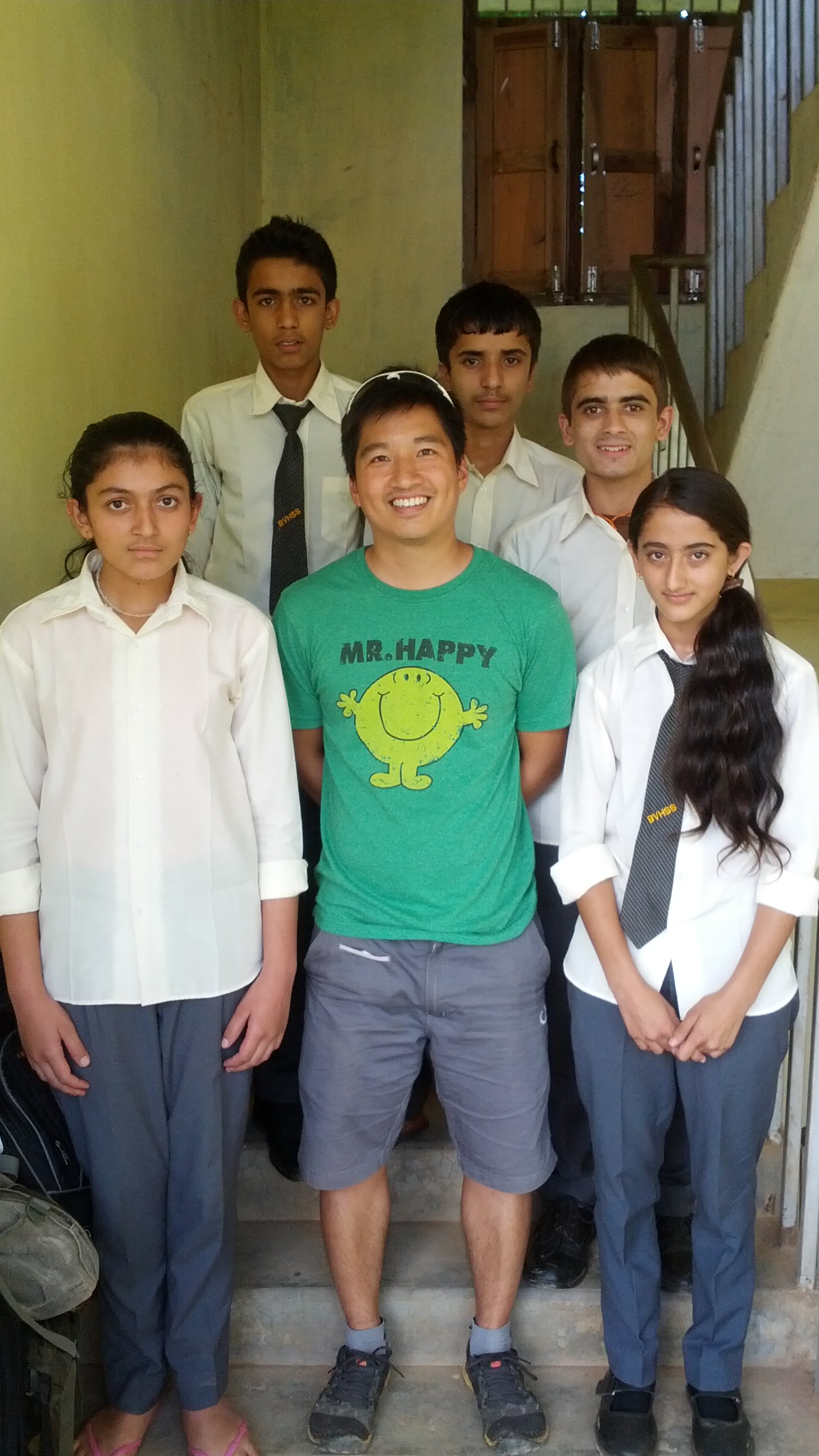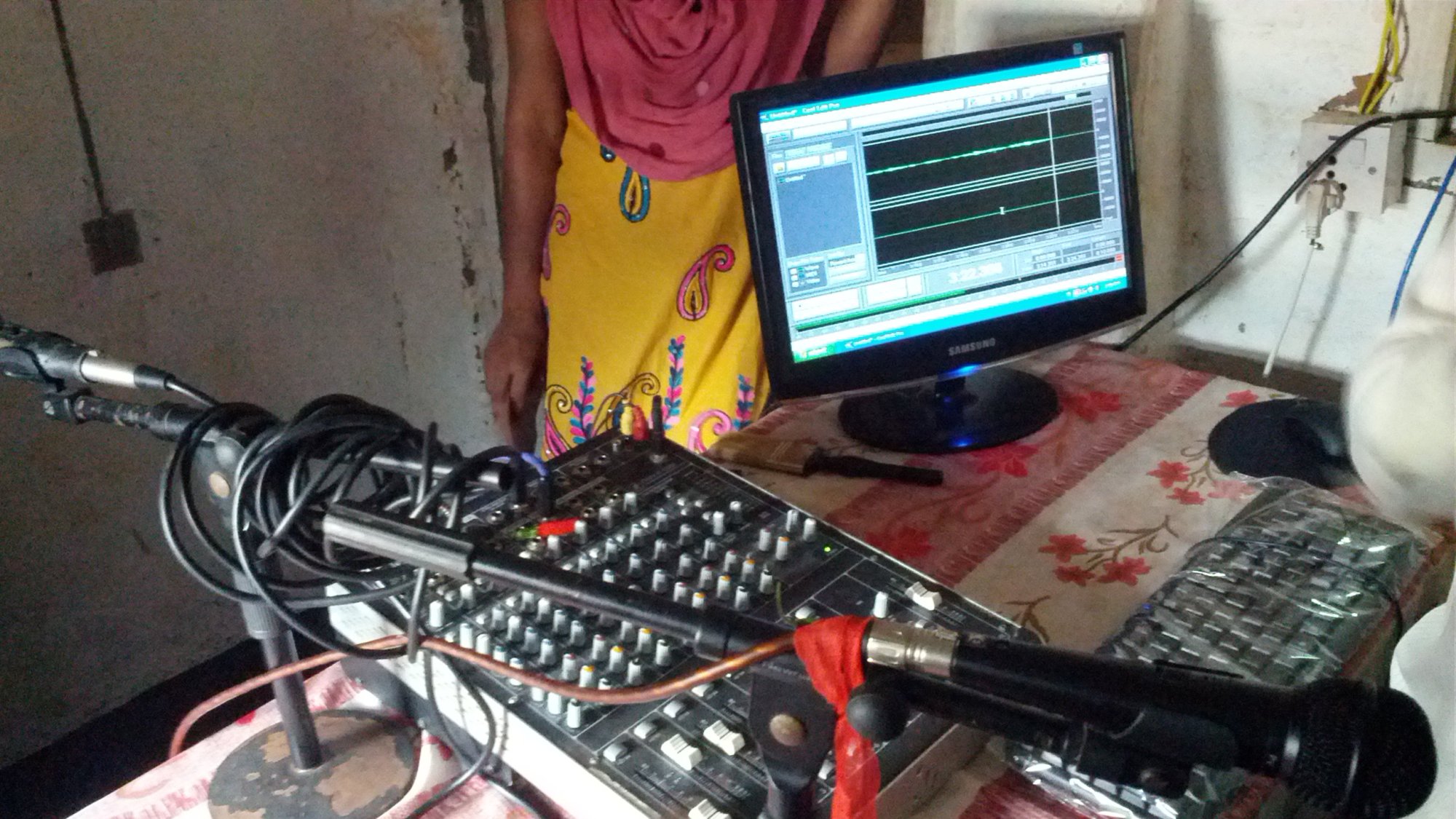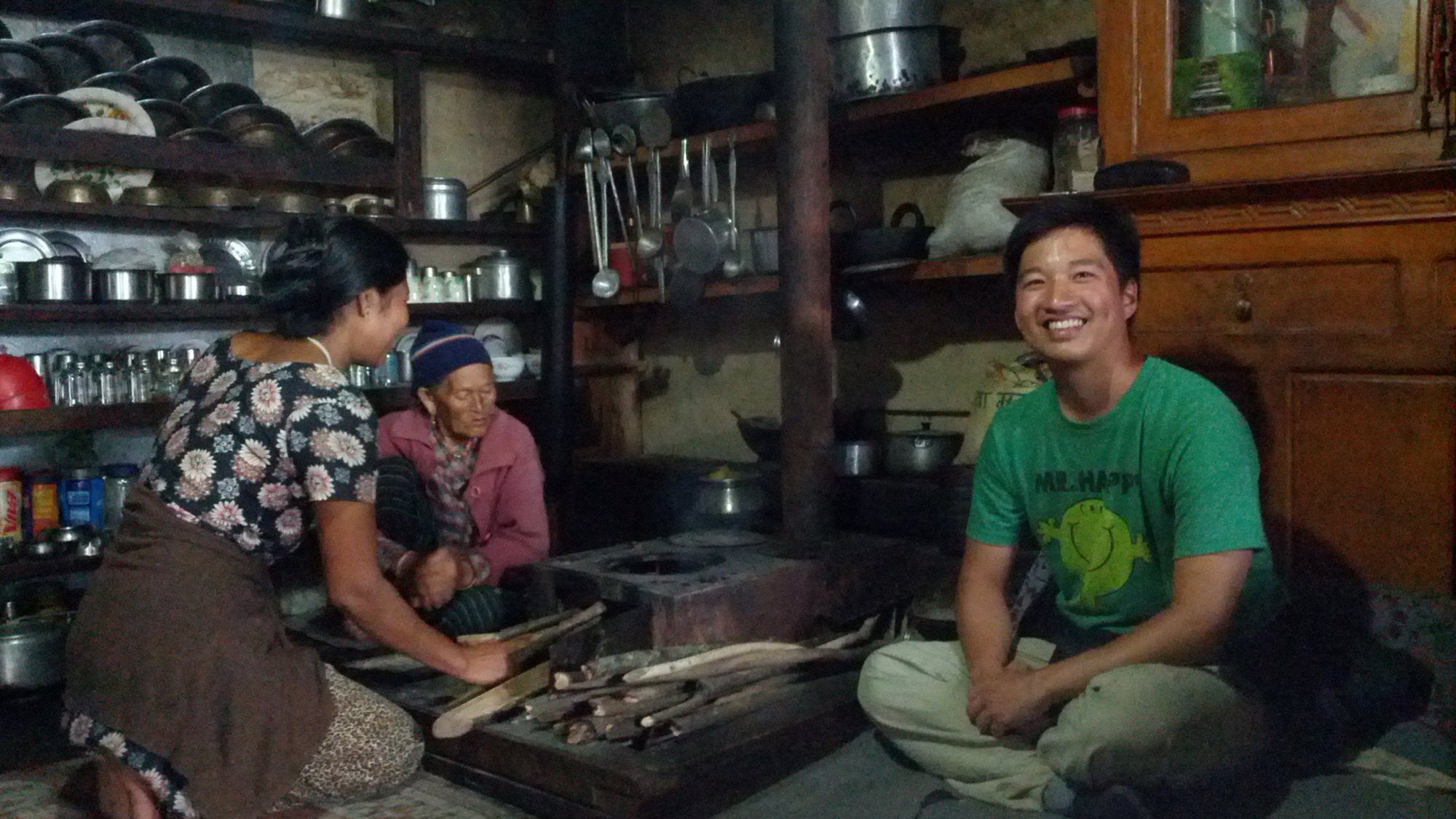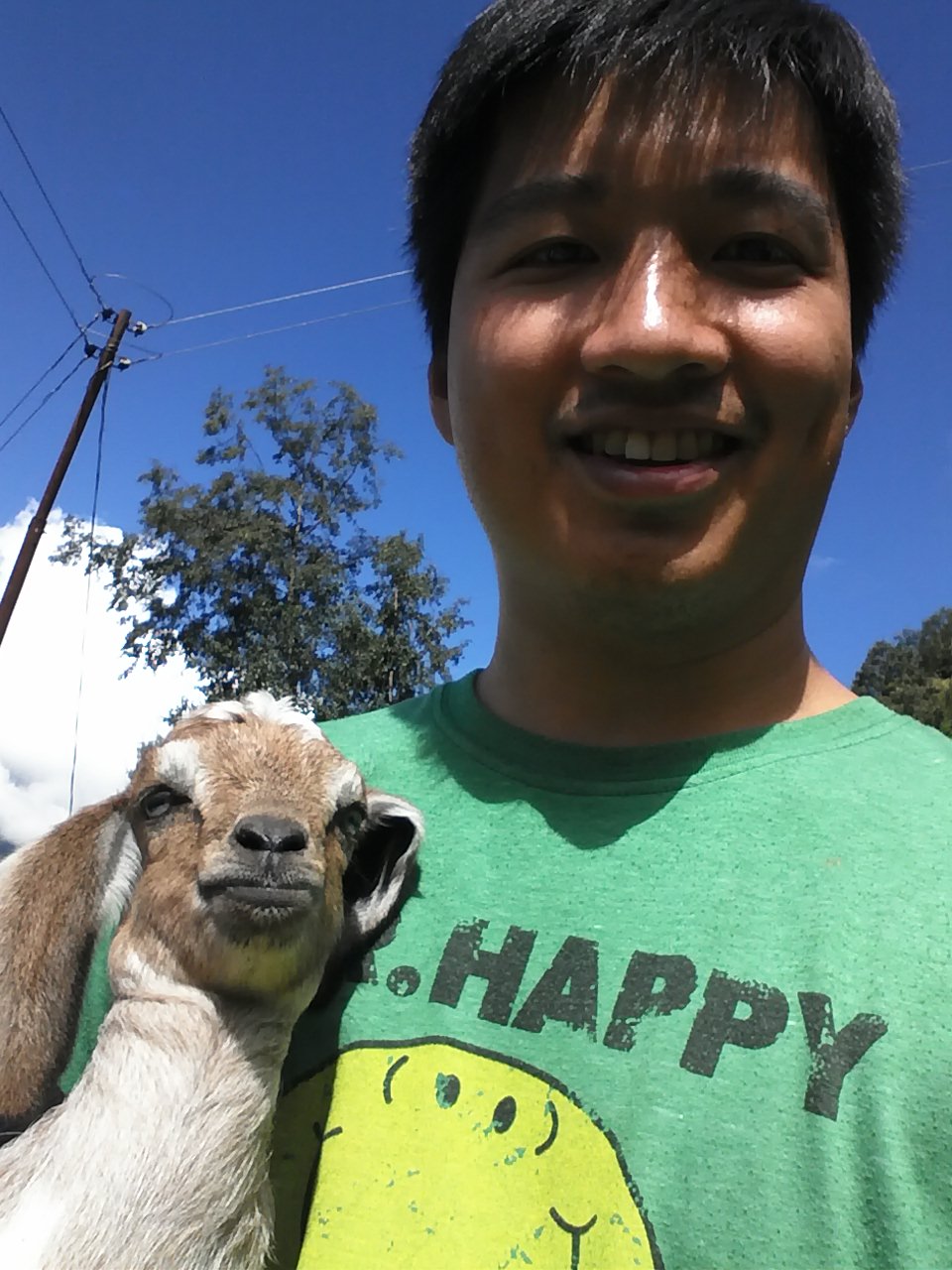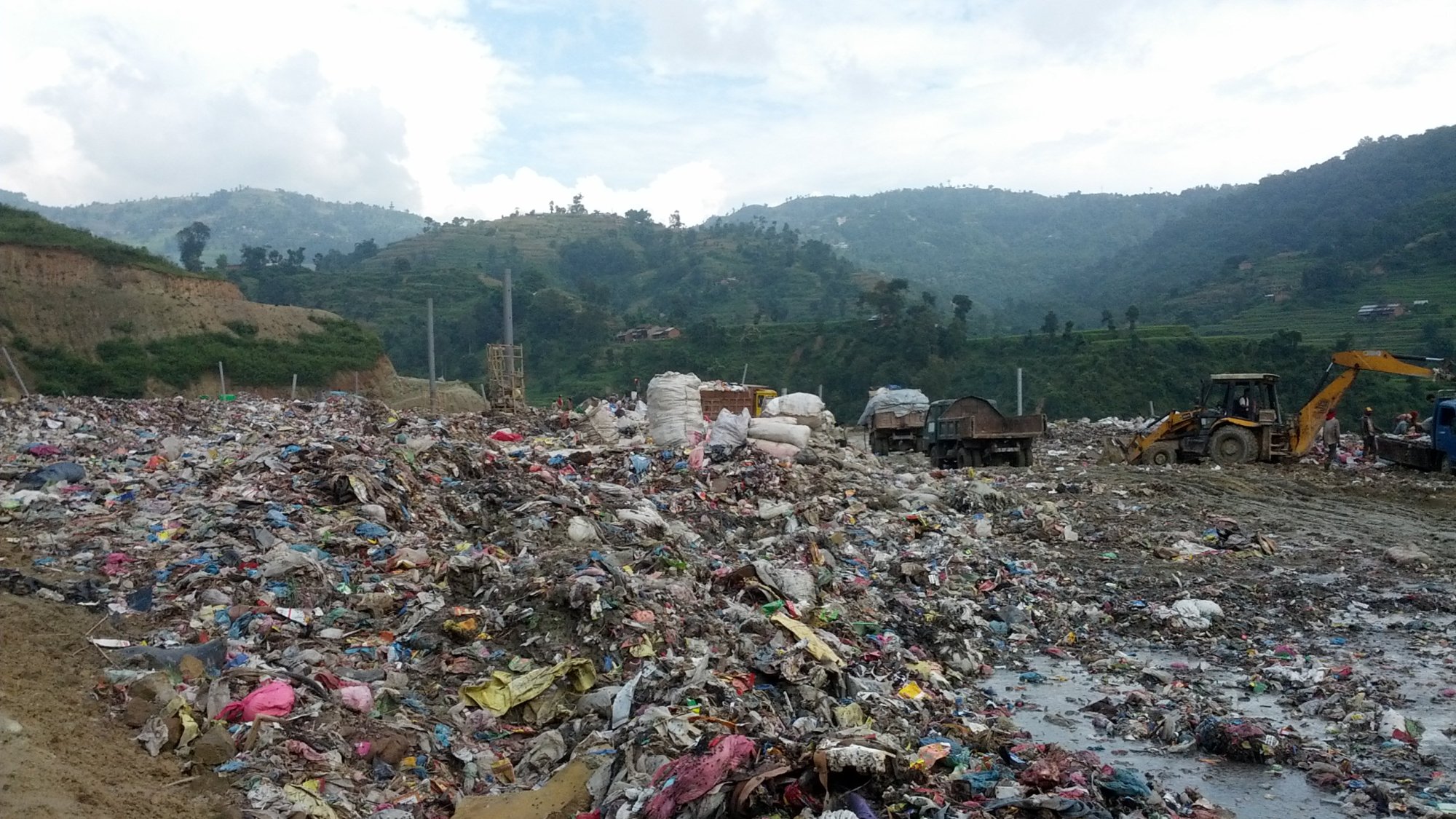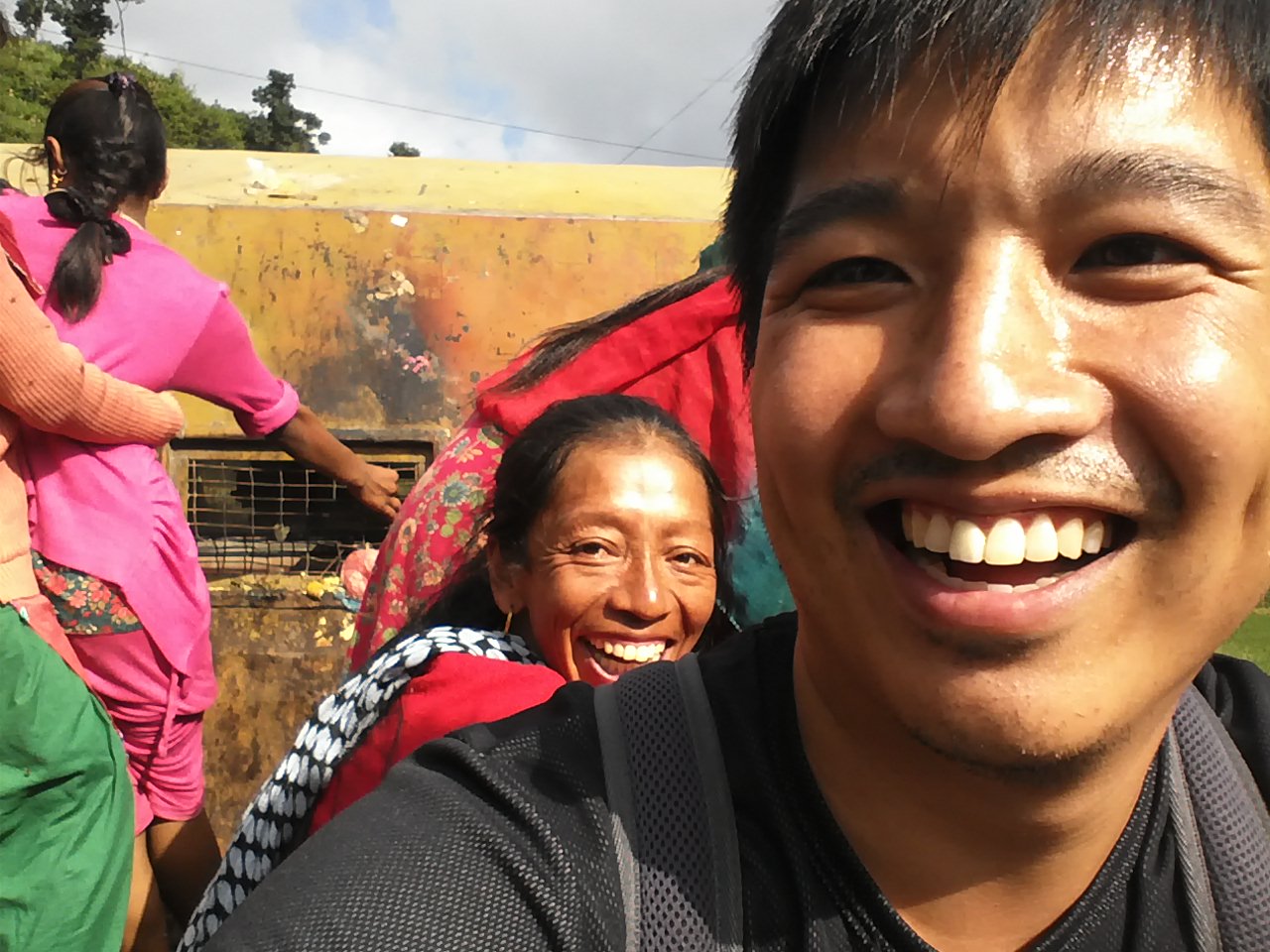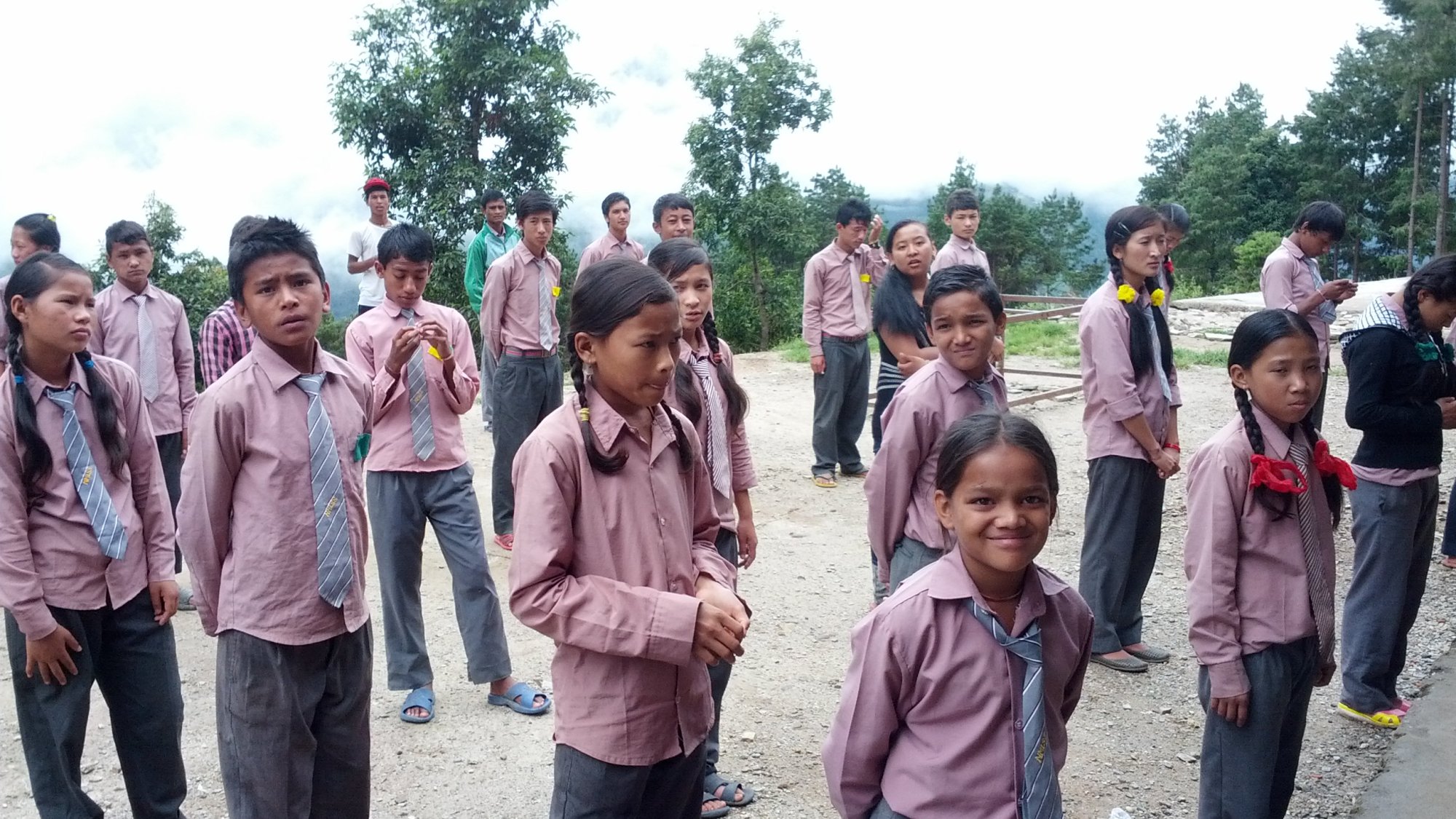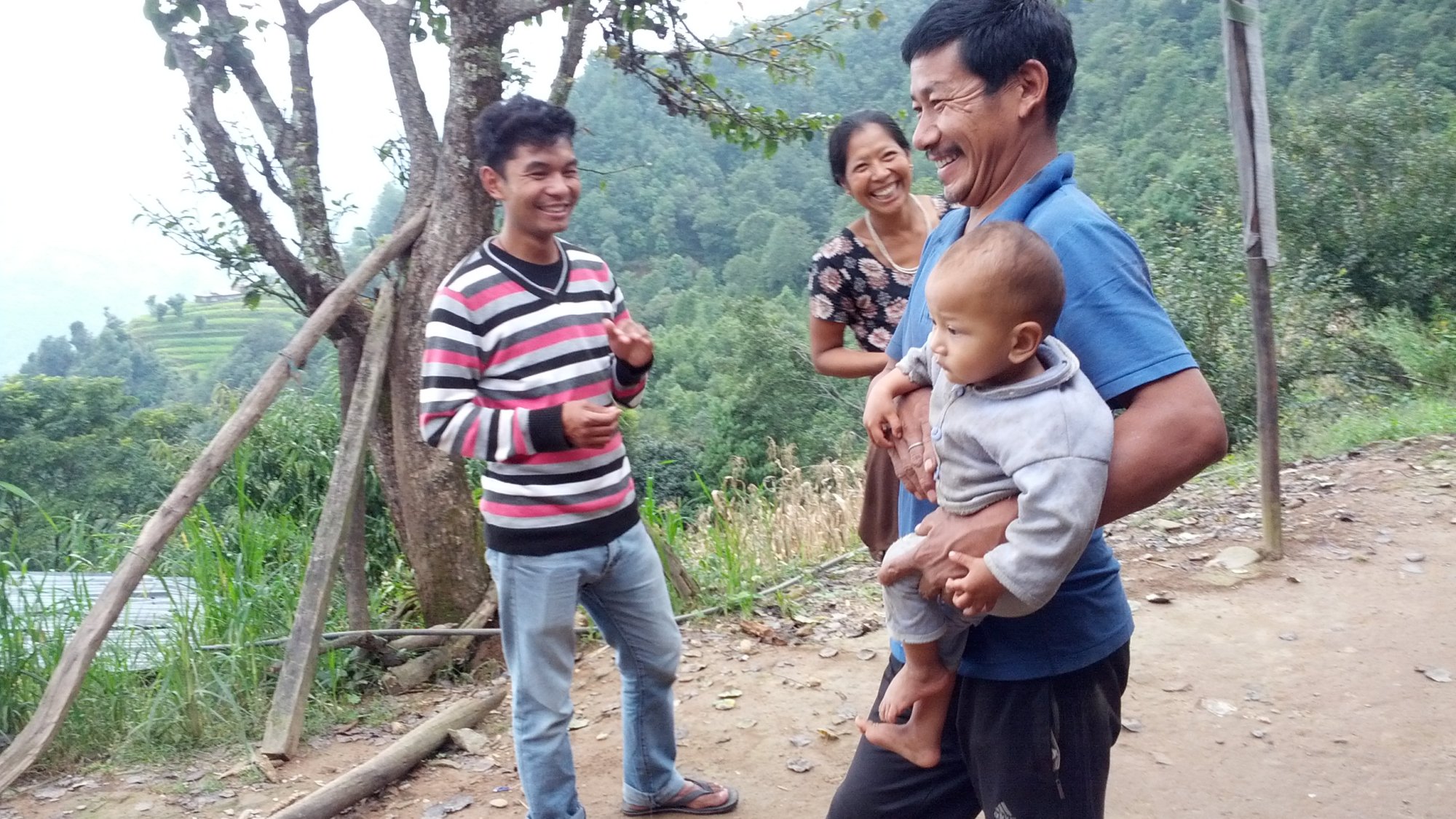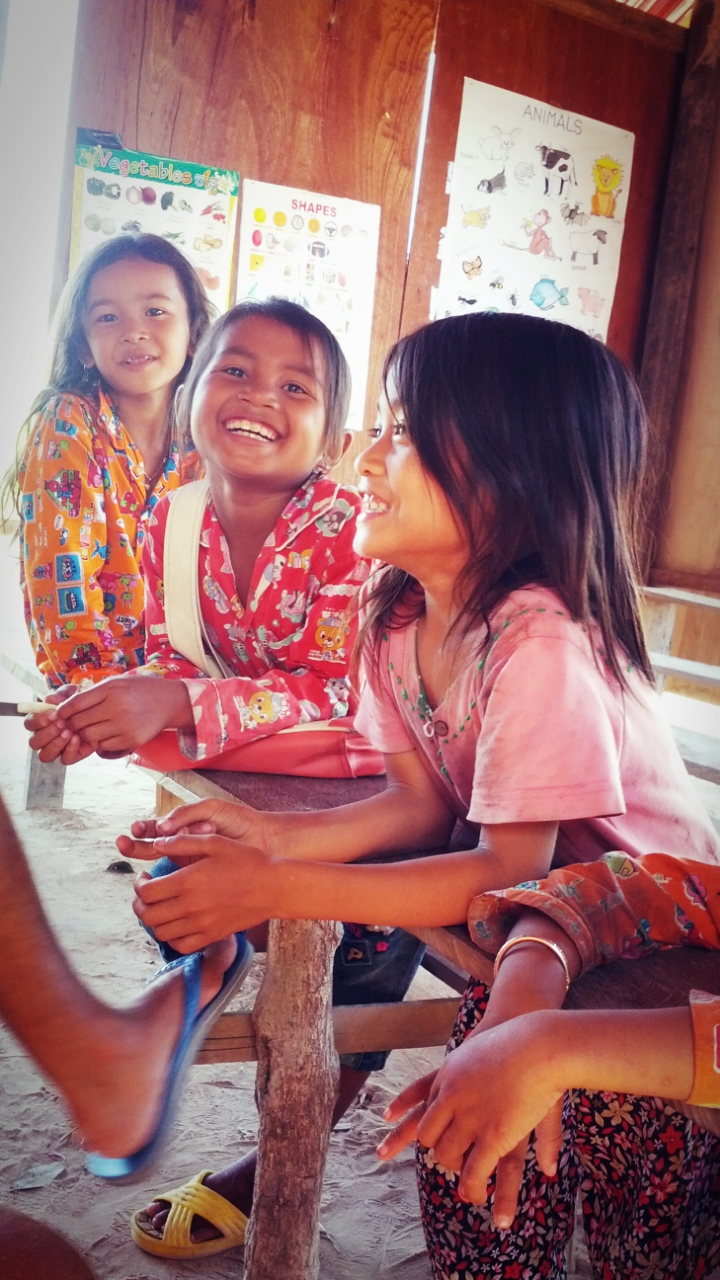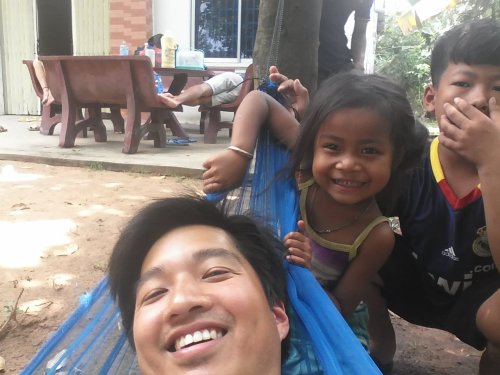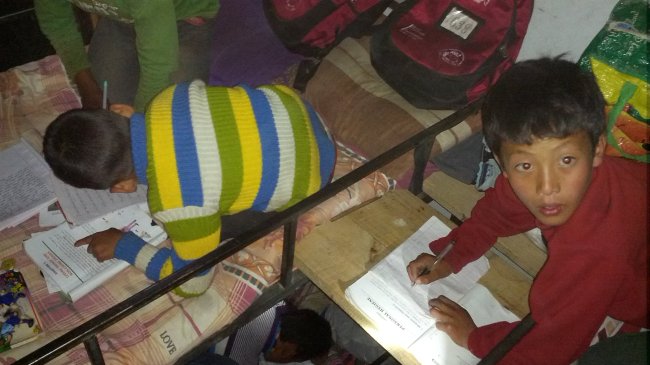Even after allowing myself two weeks to digest my time in Nepal, I still feel ill-equipped to justly summarize my experience. Nonetheless, here goes.

Definitely much darker
What I did in broad strokes
With Winnie here for the first 3 weeks, we visited 6 rural schools in 3 different regions, which looking back was pretty darned ambitious. Accustomed to Western standards of eduction, after the initial survey of the schools, I was left feeling quite discouraged.
After Winnie returned to the states, I focused my remaining 2 months on the kids at one rural school, Nurbuling. In the future when I look back to my stay in Nepal, memories of the laughing kids there will surface first. Second to that would be the crisp sunrises and peace I basked in amongst the trees and longtailed birds.

Relaxing on my favorite bed of pines
Winnie and I made new friends and formed a partnership to sponsor qualified young women to enter careers in math and science.

Team (from left to right): Bhola (Phalewas school district director), Satelite (film director), and Rajeev (book publisher and early member of Room to Read)
Cities are more complicated places.
There I stayed mainly with the fabulous Karki family. To say they went out of their way to help me whenever they could would be an understatement.

My coffee habit did not taper, and I ventured over a handful of times to this one cafe that was an hour microbus ride away by the famous Boudhanath stupa. It took some gumption to eventually take the micro everywhere. First micro experience: late 1.5 hours to a meeting!
The city was also where I was shaken by the orphanage business. Miracles do happen though. (More on orphanages later..)
Winnie and I were only able to take a quick break away from school related business, and we couldn’t have asked for a better location than beautiful Pokhara. I never thought this would be the closest I came to trekking in the Himalayas.
I still don’t know what I got myself into, but I willingly surrendered myself in a weeklong Yoga retreat.
And lastly, I went with Rohit, a host family member, to Chitwan and Lumbini, to do jungle safaris and visit the birthplace of Buddha.
On the financial side of things, it cost me a grand total of $1700 (including flight) for 77 days there, which works out to $22/day! Considering my Mountain View rent was $50 a day, this experience was a proper heist! Examples of daily costs are shown below:
Living at school $3 including food.
Hotels in Chitwan and Lumbini $7-$12.
Bus rides (not tourist) 4-8hr ones $2.5-$4.
Typical nice hotel in Thamel, Kathmandu: $30-50. My favorite was Ting’s Tea Lounge.
On the personal side of things, I learned that the following are luxuries:
Running water
Hot water
Showers
Toilets (yes, even squat toilets)
Electricity
What I learned about myself
I wanted to learn Nepali, but I did not learn enough to become conversational. I could negotiate a cab fare without them thinking I was a foreigner though!
I learned to let things unfold and not get so worked up prematurely.
I don’t like being a guest. That was a hard one for me. At the school people had to cater toward me. I was a guest at teachers’ homes and at host family. Luckily there are such things as hotels that I could retire to when I just wanted to be on my own.
Superlatives section
Most familiar culture: Hyolmo.
Most peace: the Helambu hills, gazing out into the valley, at night the groups of lights in distant villages became constellations in an inverted galaxy. In the morning the mist would decorate the valley so artistically.
Best hike: between 2 schools. Pic Nurbuling to Nakote. We would pass by a village every couple hours and see distinct features in each.
Most I spoke with foreigner: Natsumi at the yoga institute. In fact, I spoke so little proper English that I felt a culture shock in Hanoi where there are so many Brits and other Europeans.
My constants
Attending many weddings: 1 Hyolmo and 1 Hindu
Winnie. We are so blessed with technology. Whenever I got imbalanced she was there.
Podcasts. Planet Money, Men in Blazers, Enormocast, The Dirtbag Diaries.
Reading: Best books I read were Wherever You Go, There You Are, Inverting the Pyramid, The Power of One, and Poor Economics.
Writing. In my journals and here 🙂
Vietnam, here I come!
